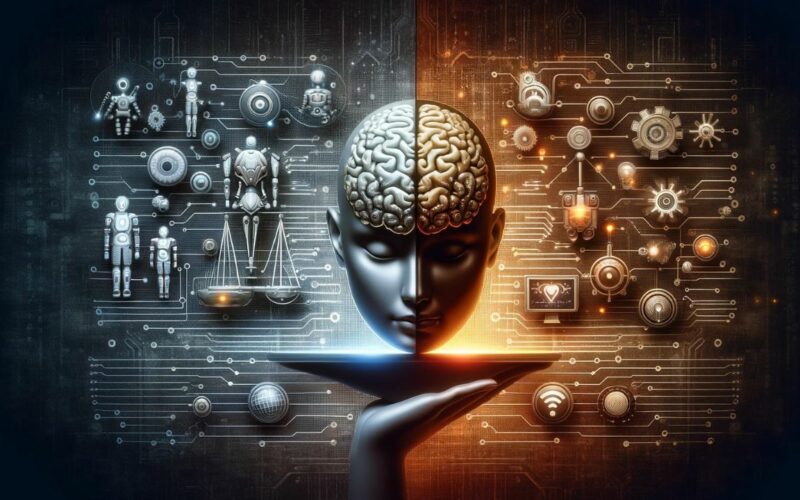News about advances in Artificial Intelligence technology and the release of newer AI-based resources are adding fuel to the superfluous fuss about the loss of jobs to machines.
Actually, this isn’t true. While there are rabid projections that AI will displace millions of jobs worldwide, it’s worth knowing that AI can never fully replicate human intelligence.
Hence, replacing human intelligence is out of the question and even unimaginable.
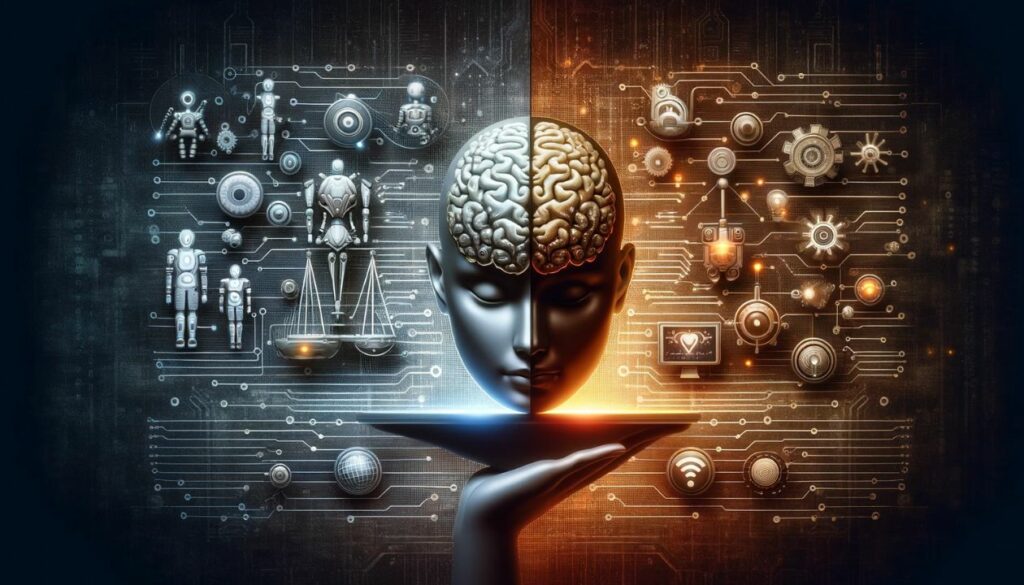
Reasons AI Won’t Replace Many Human Jobs
If you imagine that I’m flippant about AI replacing jobs or causing widespread unemployment, here is something that you should comprehend fully. AI isn’t a new technology.
The current versions of AI actually are based on models made in the 1950s and 1960s, during the peak of the Cold War between the US and its allies and the Soviet Union and its comrades. What we’re seeing today is advanced versions of these models.
Secondly, AI resources are expensive. The more sophisticated the AI module, the higher its cost. It’s quite possible that costs might spiral downward as AI advances.
However, creating advanced AI models to keep pace with demands isn’t the proverbial cakewalk, by any yardstick.
Thirdly, it’s almost impossible to create a perfect AI module that performs without errors. This has been amply demonstrated by initial versions of Gemini AI and other such modules.
After all, these AI modules are programmed by humans and not aliens from some advanced civilization from another planet. Hence, they’re prone to errors.
No organization worth its name or brand in salt will risk losing its production, processes or business to AI. Ultimately, they will continue to require human intelligence at some point.
Hence, it’s high time to call off this panic-mongering and see past the fad.
Furthermore, AI and its proliferation stands threatened by global regulations and national laws on its testing and use. AI-based applications pose a threat to the national security of almost every country on this planet.
Most governments and significantly those of the US, European Union, India, Japan and China, among others, are formulating strict laws on the use of AI. This could severely hinder the widespread use of AI in the future.
It’s a well-known fact that rampant joblessness or widespread unemployment provides a fertile breeding ground for crime at local, national and international levels.
This also includes terrorism. As a matter of fact, joblessness and poverty are one of the causative factors for individuals to accept radicalism and become terrorists. No country under the Sun will accept such a scenario.
Widespread unemployment also threatens the national economies, thereby debilitating a country to spend for essentials such as defence, healthcare and development of infrastructure, among others. Again, no nation will accept this hazard that AI allegedly poses.
What This Means for You?
Let’s see what my above statements actually imply and what they mean for you as a person and employee or even a business owner. In simple words, it means that AI will not dislocate any jobs or render any professions redundant. At least not during the next few decades and possibly never.
However, what it also implies explicitly is that some of the roles that currently run purely on manpower might now need personnel that have additional skills in using AI.
In simple words, employers will prefer hiring candidates who can effectively leverage AI tools and maximize their work output.
Such employers will ultimately require human intelligence in the form of personnel because there can be no guarantees that AI will perform on its own without committing exorbitant blunders.
Obviously, no small business or multinational corporation will risk losing its business because it relies solely on AI.
Given this situation, it’s imperative for you to acquire skills to use AI resources related to the job role. Visiting AI tool listings like whatnextinai.com can help you stay ahead by providing comprehensive updates on the latest AI tools and technologies.
And, keep honing these skills during your tenure to ensure they don’t become redundant since AI technology is indeed evolving at a rapid pace. And, keep honing these skills during your tenure to ensure they don’t become redundant since AI technology is indeed evolving at a rapid pace.
Jobs that Will Be Replaced by AI
Considering these facts, here’s a list of 10 jobs that AI could displace. While AI can’t fully replace these job roles, it’s worth noting that employers will require or recruit future employees as well as existing personnel have adequate skills.
This is imperative because every business- small or large- needs to surge ahead of the competition. Hence, organizations will require a blend of both- human intelligence combined with AI. This symbiotic mélange could result in a win-win situation for all.
Here’s a broad list of 10 jobs that AI might displace in the near future. It means the demand for jobs in certain roles might drop. Or, even rise as companies spurred by greater profits hire more personnel to yank up production. This would depend on a labyrinth of influences that AI creates in the coming years.
1. Proofreaders
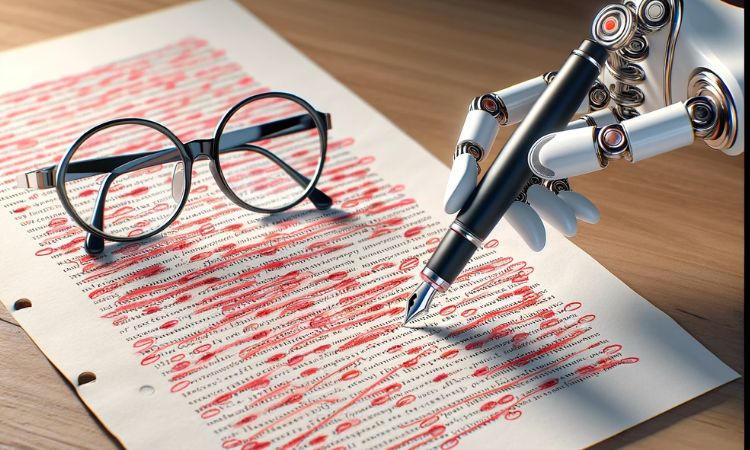
AI-based resources can displace traditional proofreaders. That’s because AI resources tend to be trained thoroughly on Large Language Models (LLMs).
This causes AI resources such as ChatGPT-3 and onwards or Gemini AI to proofread any text and make corrections within seconds. The same task could take an hour or more if performed by humans.
At the same time, AI resources are also prone to errors. At times, they might proofread and make corrections that could render the content totally out of context with what the writer was trying to imply.
For example, a legal or government document wrongly proofread by AI but published or submitted without final touches from a human, could cost lives or even cause widespread panic and anarchy.
2. Telemarketers
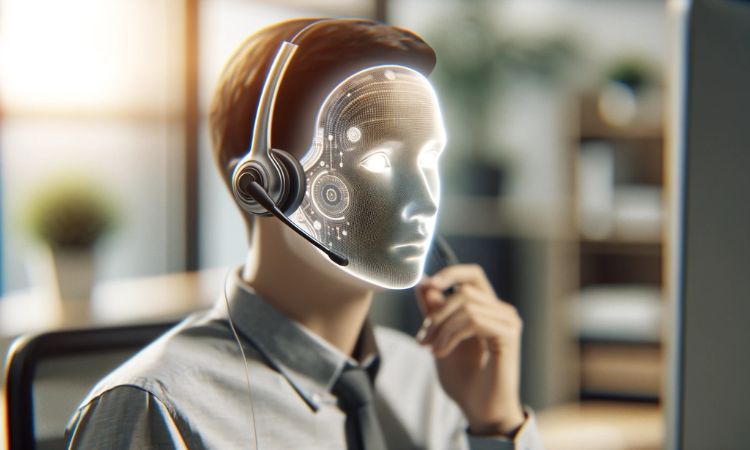
There’s chatter that the roles of telemarketers could completely be taken over by AI. This is a fake assumption that most likely arises from the success of AI chatbots.
The use of AI in telemarketing isn’t new. Nor are chatbots. In fact, chatbots have performed to near perfection when it comes to telemarketing.
However, the human touch of a telemarketer is explicitly required to clinch a deal. After all, marketing is done to generate leads and convert them to paying customers.
Only a human can convert a lead because they can comprehend what a potential client actually requires instead of providing generic solutions.
3. Assembly Line Technicians
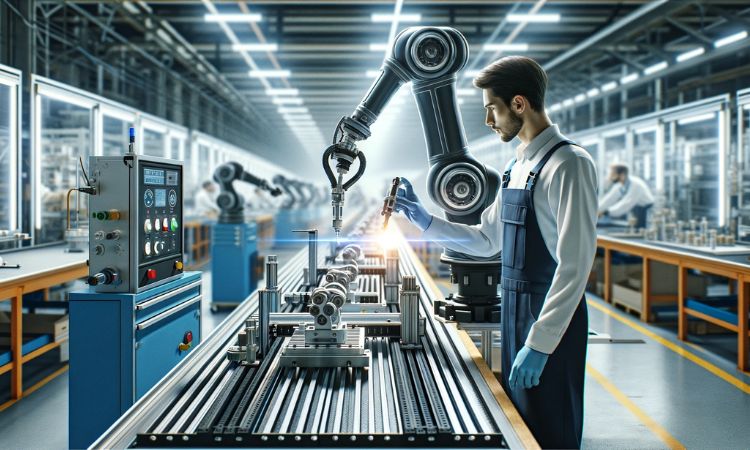
One more job under threat from AI is supposedly assembly line technicians and mechanics. These are women and men who operate machines to assemble complex stuff such as cars, aircraft or even missiles and computers.
A good AI program or resource can take over this task and operate machines on its own. However, it will lack the presence of mind to check whether something has been assembled perfectly and if not, take steps to discard the stuff.
Erroneously assembled products can have extremely severe consequences. It could lead to ghastly mishaps such as an air disaster or car accidents due to technical failure.
It could lead to faulty assembled weapons detonating in the wrong places. A faulty computer can ruin a brand’s name and cause severe disrepute as well as attract litigation from aggrieved clients or users. Hence, the human touch is needed at some point in the assembly block.
4. Personal Financial Advisors

One more job at threat from AI proliferation is that of a Personal Financial Advisor. That’s because AI could help upgrade the existing robo-advisors and provide astute fiscal advice to clients.
Furthermore, robo-advisors working with AI would be programmed to provide better financial advice compared to existing ones that work on computing and algorithmic recognition, among others.
To begin with, no person who loves their money will take and act on financial advice given by a machine or AI resource, regardless of its genuineness. Secondly, AI-based robo-advisors aren’t in any position to distinguish between various savings and investment plans.
They can’t be updated daily to stay abreast of developments in stocks and commodities markets. Finally, robo-advisors with AI will come from various organizations. Hence, they won’t be able to offer better products for other financial companies.
5. Data Entry Clerk

At high risk is the profession of data entry clerks. But how high is the risk that AI could replace humans to perform this task of data entry altogether? Moderately low, in fact.
When we talk of data entry operators, it’s better to understand what their tasks are. Their basic task is to glean info from various sources and enter it on specific templates provided by the client. This often involves reading complex handwritten paper forms or computer-generated data.
While AI can replace some such tasks, it wouldn’t be able to read scratchy handwriting detect incomplete information or even segregate fake from genuine.
It can only gather text inputs and fill templates without giving any thought. That’s because thought requires human intelligence and that can detect errors or frauds.
6. Software Engineers

When I read that AI might replace software engineers or software developers, my first reaction was shock. However, upon reading more, I found that AI will only impact those software engineers and developers who don’t have adequate skills.
Because AI can’t develop software on its own. It needs a trained software developer or engineer to give proper prompts and create one.
In simple words, this implies one thing. Software engineers needn’t fear losing their jobs to AI. Instead, the demand will be for software engineers and developers who can create something faster with the help of AI.
Clients will demand superior quality software quickly too, and that can be achieved by humans working with machines.
7. Content Writers

Indeed, AI resources can write content within a matter of seconds. Just give a simple, one-liner prompt and an AI resource such as ChatGPT-3 or higher and Gemini AI, among others, will swiftly write a 2,000-word article.
Sounds superb but the ground reality is much different. The articles or content that an AI resource will generate will be based on its learning and programming. It cannot provide the latest information or research. Furthermore, AI resources can never replicate human emotions, as I said earlier.
Considering these facts, it’s clear that AI generated content could be factually outdated or incorrect and in fact, bland too. This means, human content writers will remain in demand.
Only, the future needs will be of human content writers that can generate content with the aid of AI tools. That’s because the demand for authentic content will surge. Content writers can churn out copies faster by performing some tasks to AI such as research and later, checking the information it gleans, manually to weed out inaccuracies.
8. Graphic Designers
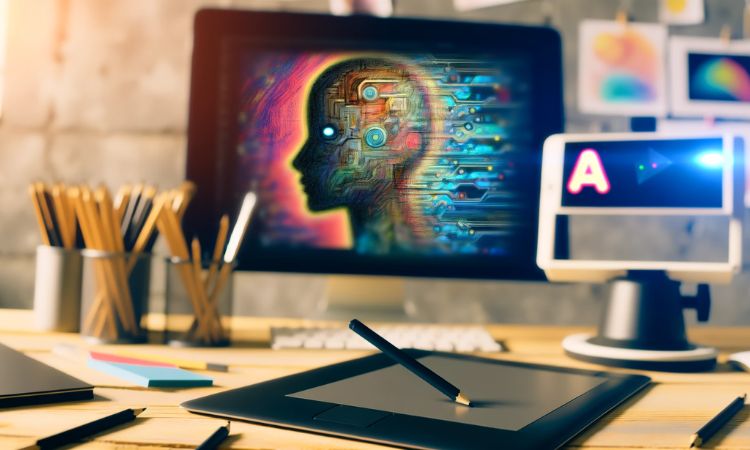
Yes, there are AI tools or resources that can generate designs within minutes, if given proper inputs or prompts, as they’re called. However, experiments in the past have proven that blunders run rife in AI-generated graphics and designs.
Some of the designs that generated me for my book cover turned out to look eerie and spooky, to say the least, despite giving sufficient and correct prompts.
Designing something requires intense creativity and a profound sense of aesthetics. Creativity is influenced directly by inspiration and aesthetics from the environment.
And both these require a complex machine known as the human brain. Hence, AI can never function fully as a graphic designer.
At the same time, graphic designers equipped with AI and the skills to use such tools can excel in the market by blending their own creativity with the resources that AI provides. I conclude AI won’t sound the death knell of this felicitous vocation.
9. Astrologers

Surely you’ll snigger at the fact that AI will eventually boot out astrologers and their esoteric trade. That might come true to some extent but not fully. Astrology is a science, albeit very complex and abstruse.
Often it involves understanding the significance of various occult and necromantic stuff. Modern-day human astrologers combine all these skills to create your horoscope and provide readings, regardless of the fact they sometimes go awry. Yes, AI can mean the end of fake astrologers that generate random predictions based on vivid imagination.
AI can generate some generic horoscopic readings and astrological predictions peculiar to those published by tabloids and certain genres of magazines or even websites.
However, no AI tool can be developed to learn a science that deals with a myriad combination of several elements, from the movement of planets to birth dates and times, a plethora of influencing factors on human lives and the impact of death and rituals.
However, astrologers who can give proper prompts to adequately trained LLM models might be able to provide faster and better services.
10. Customer Care Agents
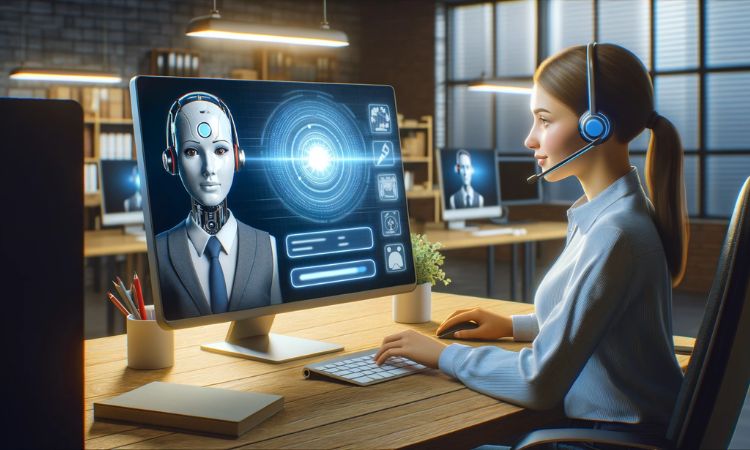
The majority of organizations that serve the public require customer care agents. Usually, customer care agents are tasked with two main responsibilities: troubleshooting and preventing client attrition.
Thousands of companies worldwide, if not millions, are already using AI-based chatbots to fulfil this onerous role, to some extent, with some success.
However, the same organizations also hire human customer care agents because AI can’t resolve every issue that a client faces. Some of these can be unexpected or even unique.
Troubleshooting and pacifying an aggrieved and livid client isn’t child play and no AI resource or tool can ever be developed to feign Emotional Intelligence that’s intrinsic to humans.
While some elements of customer care can be handled by AI-powered chatbots, as we’ve seen in the past few years, replacing the process with only AI can prove cataclysmic to any business or financial institution. Any capricious response by AI can put an organization at losses worth millions of dollars or even attract expensive lawsuits.
Conclusion
While AI can never replace human intelligence, Emotional Intelligence and other traits, it can definitely be useful to expedite work processes. This simply means that most professions that AI can allegedly replace would merely require you to master AI skills.
You could do so by keeping abreast with the latest news about AI and various tools that’s planned or already available in the market.
Before concluding, I will caution you against falling prey to hype and rumours about job losses that AI can cause. Ultimately, the future holds mysteries that are beyond the ken of mortal minds like mine.





